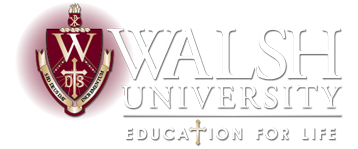Steps to Increase Your Chances of a Successful F-1 Visa Application
There are two important things you should do to strengthen your chances of a favorable F-1 visa decision:
- Be fully prepared with all required documentation.
- Remain calm and confident during your interview.
1. Understand the Visa Process
Most visa procedures and requirements are standardized across U.S. Embassies and Consulates, but some steps may vary by country. Be sure to read the website of the U.S. Embassy or Consulate where you plan to apply. It will list country-specific procedures and required documents.
Helpful resources:
2. Review Your Form I-20 Carefully
Once you receive your Form I-20 from Walsh University, check the following details:
- Name: Is it spelled exactly as it appears on your passport?
- Personal information: Is your date of birth, country of birth, and citizenship correct?
- Academic info: Is your degree level and major correct?
- Dates: Are the “Program Start Date” and “Program End Date” accurate?
- Financial info: Are funding sources and amounts correctly listed?
- Signature: Initial I-20s must be signed by a Designated School Official (DSO) on page 1. There should be no signature on page 2 (travel endorsement) unless you have arrived in the U.S. and plan to travel later.
You must sign and date your I-20 at the bottom of page 1 (#11). This confirms that you understand and agree to comply with U.S. immigration regulations.
If you find any errors, contact the Office of Culture and Belonging immediately for corrections.
3. Pay the SEVIS Fee
Before scheduling your visa appointment, you must pay the $350 SEVIS I-901 fee to the U.S. Department of Homeland Security. This fee supports your SEVIS record (linked to your I-20).
Visit the Department of Homeland Security to pay the SEVIS Fee online
Save your payment confirmation receipt—you’ll need to present it during your visa interview.
4. Schedule and Prepare for Your Visa Interview
Follow the application instructions on the U.S. Embassy or Consulate website for your country. You’ll need to:
- Complete the DS-160 visa application form
- Pay the visa application fee (MRV fee)
- Schedule your visa interview
- Prepare required documents:
- Valid passport
- Form I-20 from Walsh University
- SEVIS fee payment receipt
- Admission letter from Walsh University
- Financial support documents
- Any test scores or transcripts required by your academic program
5. Prepare for the Interview
Consular officers are often required to make quick decisions based on limited information, so your interview may last only a few minutes. Be concise, honest, and focused. Written documents should be neat and easy to read.
The Consular Officer will focus on three main questions:
1. Do you have strong ties to your home country?
You must demonstrate that you plan to return home after completing your studies. Evidence may include:
- Economic ties (family business, job offers, property, inheritance)
- Family/social ties (family members who live in your home country, community involvement)
- Future plans (how your U.S. education will be used in your home country)
2. Are you a bona fide student?
Be prepared to discuss:
- Why you chose Walsh University
- Your intended major and how it relates to your career plans
- Your academic background and commitment to completing your degree
Bring documents such as:
- Transcripts
- Test scores (TOEFL, SAT, GRE, etc.)
- Letters of recommendation (if available)
3. Is your sponsor financially capable?
The officer must be assured that you can afford your studies without unauthorized work. Be ready to explain your funding:
- Who is sponsoring your education? (Parents, family, organization, etc.)
- If not your parents, explain the relationship and why they’re supporting you.
- Provide evidence of income: tax returns, bank statements, employment letters, or affidavits of support.
If Your Visa Is Denied
If your visa is denied, the Consular Officer must provide a written explanation. You may reapply, but only after you thoroughly review the reasons for the denial and gather stronger documentation or clarification to address them. The officer will expect to see new, compelling evidence during a second interview.
